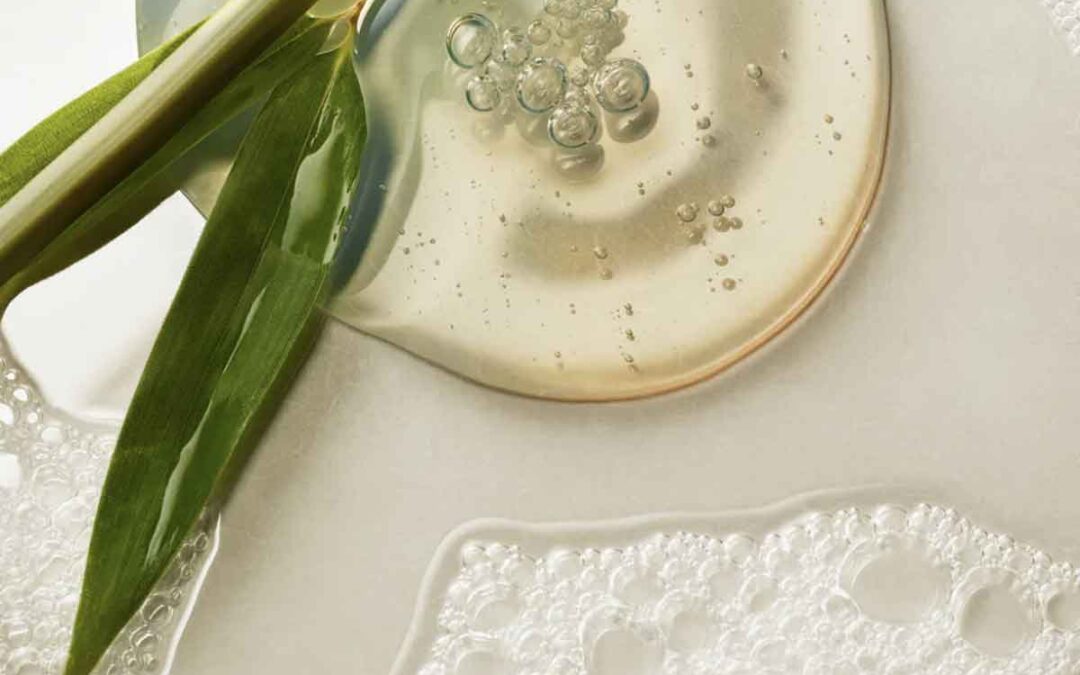IN THIS ARTICLE
When it comes to skincare, there’s a growing awareness and demand for clean and organic products that are not only effective but also safe for both our bodies and the environmental impact of skincare. The skincare and cosmetics industry has been contributing greatly to the decline of our planet, and the demand for green products continues to increase.
Non-toxic skincare products are free of harmful ingredients that could pose a risk to our health and the planet. In this article, we will go over the importance of understanding the environmental impact of our skincare choices and help guide you toward choosing products that are good for you and the planet.
Remember to check out our Ultimate Guide to Clean Beauty for more resources on how to transform your daily routine into a sustainable and effective one.
State of the Skincare Industry Environmental Impact in 2023
Today’s skincare industry, like many others, has a considerable environmental impact. The principal ways in which it contributes to environmental damage are:
- Packaging Waste: When we see footage of garbage landfills and the ocean plastic islands, we see many plastic bottles of skincare products. Most of the products are packaged in plastic, contributing to environmental pollution when we throw them away.
- Water Usage: A lot of water is used to produce skincare products. Each step requires water, from the extraction and processing of raw materials to the actual formulation of the products. This can push the regions to water scarcity.
- Chemical Pollution: Many skincare products contain chemicals that can harm the environment. When these products are washed off, these chemicals can end up in water systems, damaging aquatic ecosystems and polluting water supplies. Certain chemicals, such as microplastics, have commonly been found in the fish we eat and even in our blood.
- Deforestation: Certain ingredients used in skincare products, such as palm oil, are associated with deforestation and habitat destruction in many regions worldwide. This has a devastating impact on biodiversity and contributes to climate change.
- Animal Testing: While banned in many regions, animal testing for cosmetic products still occurs in some parts of the world, raising ethical and environmental concerns.
The future of the skincare industry relies on both the companies making sustainable choices and us, consumers, demanding and choosing environmentally friendly products.



The Rise of Non-Toxic Skincare
Thanks to increased consumer awareness about the environmental impact of beauty products, we’re living through a shift in industry practices (finally!). Consumers demand transparency and understanding of what is in their products. This results in worldwide standardization practices like The Environmental Working Group Skin Deep Database and the COSMOS Standard, setting organic and natural cosmetics standards. People are choosing more and more brands with ethical and sustainable standards.
Common Toxic Ingredients in Skincare Products
During the rise of the beauty industry, companies were not fully regulated and started adding synthetic ingredients that, in the long run, have been proven harmful to us. Many of today’s products still contain potentially harmful chemicals such as parabens, sulfates, and synthetic fragrances. These unnecessary ingredients can pose risks to human health, from an allergic reaction to even cancer. The environmental consequences are equally concerning. When these chemicals are washed off our skin, they can contaminate water systems since many water plants cannot filter them out.
You can learn how to transition to a non toxic skincare routine and avoid harmful ingredients in your skincare routine, it just requires your will to start a change for a healthier you, and a cleaner environment.
Environmental Benefits of Non-Toxic Skincare
Non-toxic skincare benefits the environment by employing sustainable, ethical practices, from responsible sourcing to fair trade. Its reduced, recyclable packaging minimizes waste, and the absence of harsh chemicals spares our oceans from pollution and our skin from allergens. Responsabile and eco-friendly companies seek to lower their carbon footprint through energy-efficient manufacturing, local sourcing, and reforestation projects. Fields of Yarrow is a clean skincare company with a strict sustainability program that englobes these characteristics offering real non-toxic skincare for you and our planet.

Certifications and Standards
Eco-certifications for skincare products are very helpful for us- They ensure that a product meets specific standards for sustainability and safety. Fields of Yarrow is a member of The Punch Community, a community accelerating the transition towards a sustainable future in Bali.
The Intersection of Non-Toxic and Cruelty-Free
The ethical considerations in skincare go beyond just the absence of toxic ingredients; they also care for animal welfare, which is where the non-toxic and cruelty-free movements meet. Supporting vegan and cruelty-free brands ensures that no animals were harmed or tested in making the products. It gives skincare a holistic approach composed of human health, animal welfare, and environmental sustainability.
Skincare brands are pivotal in promoting sustainable practices within the beauty industry. They can lead by example through their commitment to corporate social responsibility (CSR) initiatives, from using sustainable ingredients to supporting community development projects. Brand partnerships can also drive positive change by creating a ripple effect that promotes sustainability across the industry.
The Future of Non-Toxic Skincare
Advancements in sustainable skincare technology, changing market trends, and evolving consumer preferences are shaping a greener future for the beauty industry. As more people embrace non-toxic skincare, brands will continue to innovate and improve their sustainability practices. For a positive future, the goal is a beauty industry that does not prioritize the bottom line at any cost but, instead, focuses on our health and well-being and that of our planet as well.
FAQs
What are microplastics, and why are they a concern in skincare products?
Microplastics are tiny plastic particles commonly found in skincare products like scrubs and exfoliants. They are a concern because they can end up in water systems, polluting aquatic ecosystems and potentially entering the food chain. Choosing non-toxic skincare products that do not contain microplastics helps minimize this environmental impact.
How can I determine if a skincare brand is truly sustainable and not just greenwashing?
Greenwashing refers to when companies falsely claim to be more environmentally friendly than they actually are. To determine if a skincare brand is genuinely sustainable, look for transparency in their sourcing practices, certifications from reputable organizations, and evidence of their commitment to sustainability beyond just marketing claims. Researching the brand's sustainability initiatives and reading customer reviews can also provide insights.
Can non-toxic skincare products be as effective as conventional products?
Yes, non-toxic skincare products can be just as effective as conventional products (and sometimes, thanks to a generally higher concentration of active agents, like in our products, they are even more effective). Many brands have invested in research and development to create high-quality formulations using natural and safe ingredients. It's important to remember that effectiveness can vary depending on individual skin type and concerns, so it may require some trial and error to find the right non-toxic products that work for you.
Can I transition to non-toxic skincare if I have existing skin concerns or conditions?
Yes, you can transition to non-toxic skincare even if you have existing skin concerns or conditions. Many non-toxic skincare brands offer targeted products for specific skin concerns, such as acne, dryness, or aging. It's important to consult with a dermatologist or skincare professional to ensure the products you choose are suitable for your specific needs and won't exacerbate any existing conditions.
How can I support sustainability beyond my skincare product choices?
Supporting sustainability beyond skincare product choices can involve various actions. You can reduce waste by opting for reusable or refillable packaging options, practice water conservation in your daily routines, choose sustainable and ethical fashion brands, and advocate for environmentally friendly practices in your community. Every small step contributes to a more sustainable lifestyle and a healthier planet.






